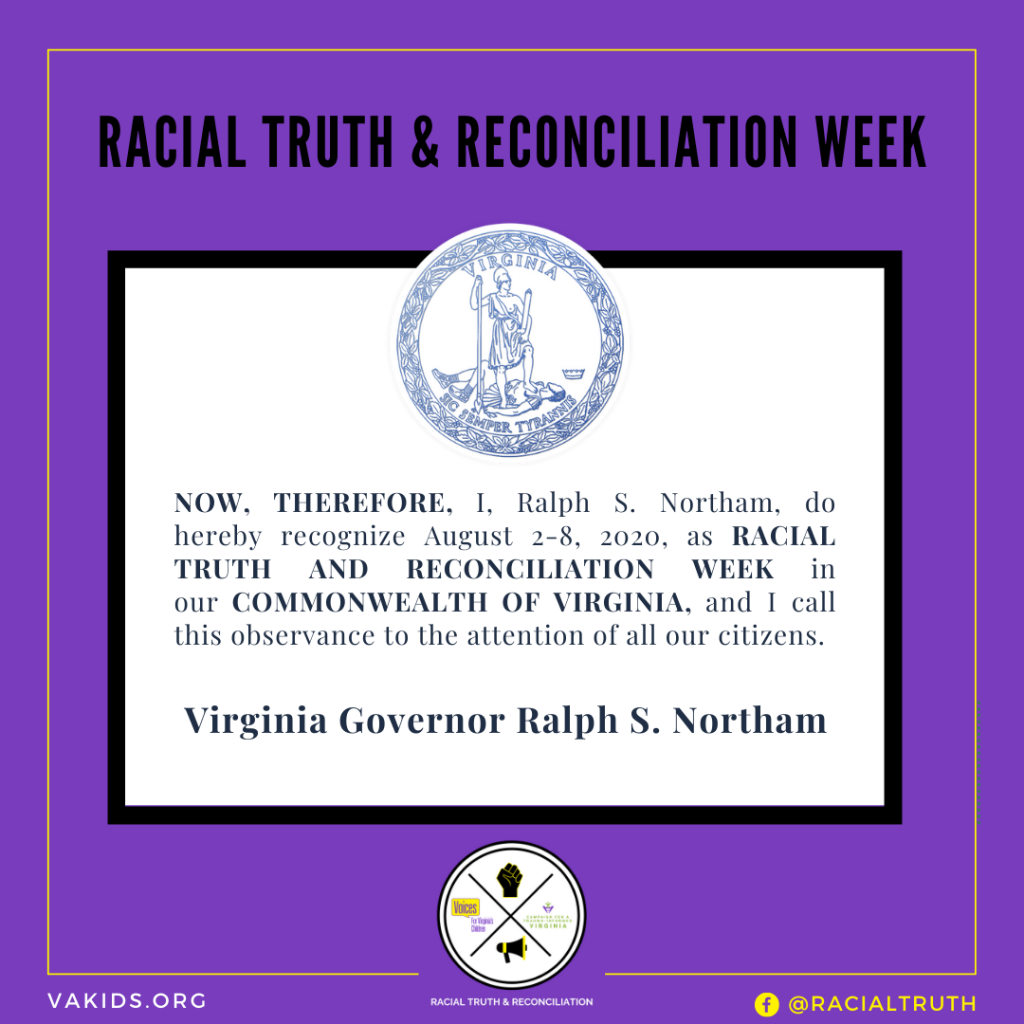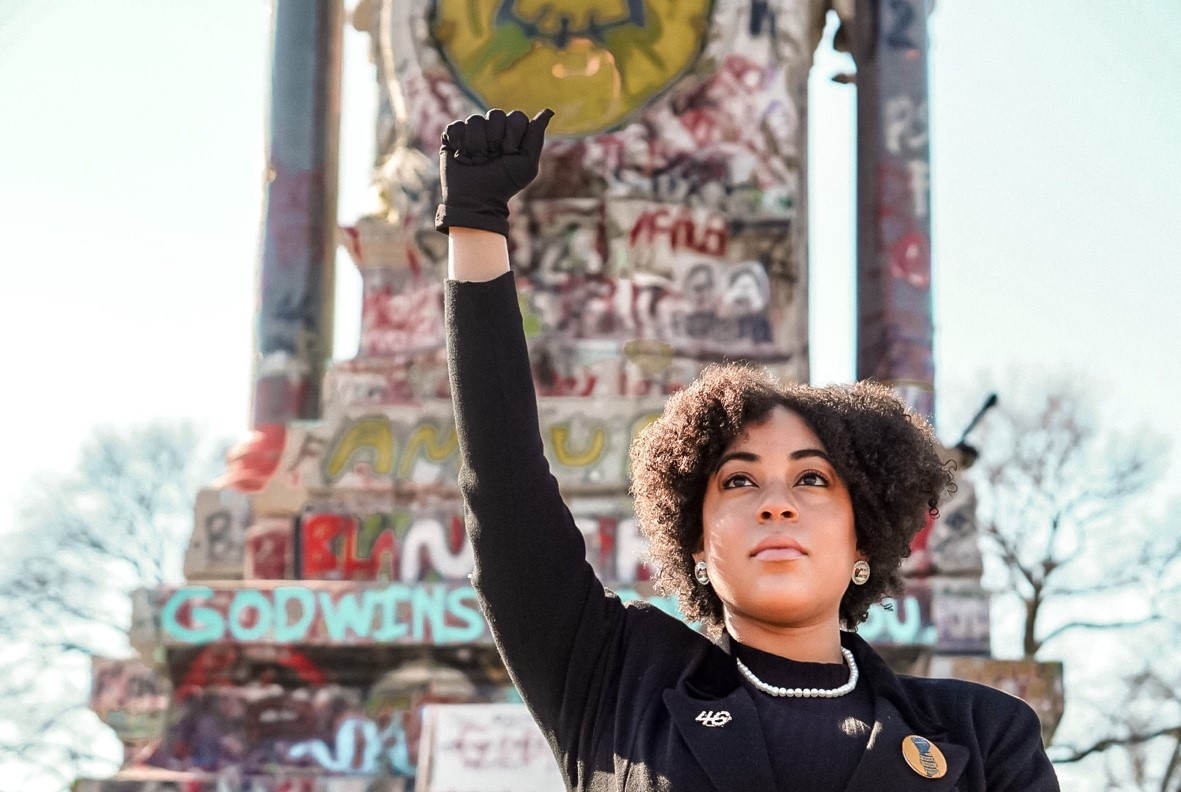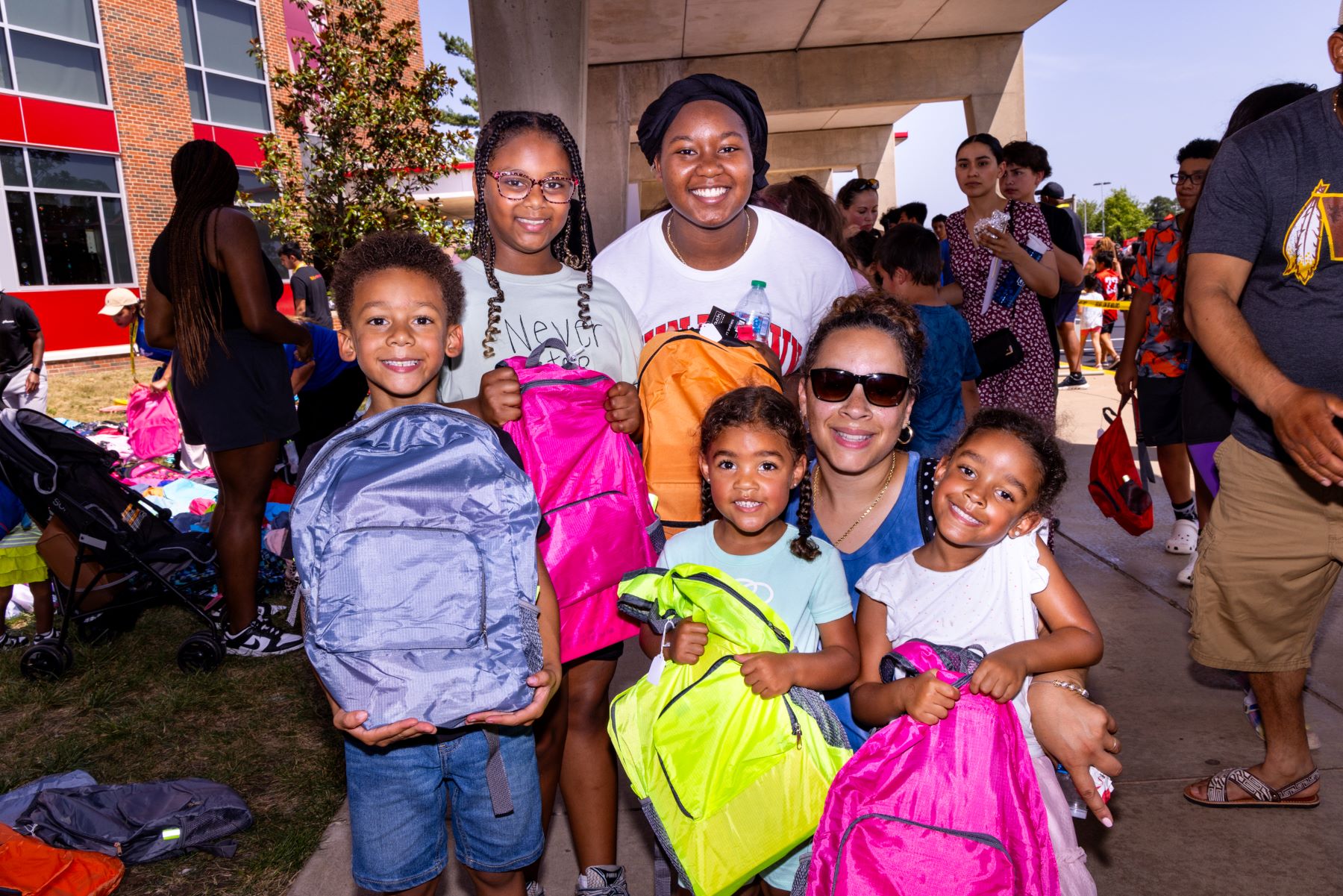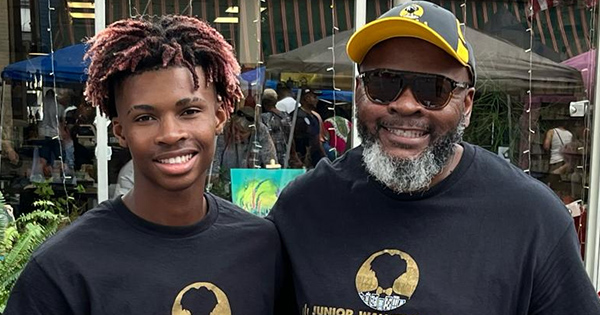Chlo’e Edwards of Voices For Virginia’s Children on Racial Truth and Reconciliation
According to the Voices For Virginia’s Children website, Racial Truth & Reconciliation (RTR) Virginia (RTRVA) is an intentional evolution of the Campaign for a Trauma-Informed Virginia that further concentrates on the organizations’ efforts on the intersection of trauma and equity. This community-led initiative catalyzed by Voices for Virginia’s Children empowers advocates with lived experience to ignite the change they wish to see in their communities.
The Campaign for a Trauma-Informed Virginia was created for the purpose of influencing state policy to become more trauma-informed. The campaign worked towards this by preventing exposure to trauma and by adopting trauma-informed care and evidenced-based practices in child and family-focused settings. The ultimate goal of the Campaign was to connect local-level challenges to innovative best practices and advance state-level opportunities around trauma-informed care across sectors. Created in 2020 by Policy Analyst Chlo’e Edwards, this past week was the second annual Racial Truth & Reconciliation Week, with several speakers discussing a bevy of topics, from family economic stability to social justice.
Edwards spoke with the PW Perspective about Racial Truth & Reconciliation Week and what it meant when Governor Northam made the official proclamation on August 24:

“I think that this initiative is bold and in the spirit of Good Trouble, as the late Congressman John Lewis would say,” said Edwards. “For the initiative to be recognized as well as for a young Black woman to be leading it, with the support of the community, it’s affirmative that everyone holds power. It reminds me of an old West African Proverb Ase, “The power to make things happen.”
So how was she able to bring this together to fruition, especially during the challenges of last year’s pandemic? “It was a lot of hard work. “I had a lot of help from the community with dealing with these dual pandemics,” said Edwards.
She talks about the importance of taking action against the backdrop of racism’s impact on families. “We were tired of being resilient for over 400 years. We asked, ‘What about the truth, reconciliation and justice so everyone can be equal?’ Working through the death of George Floyd among others, got us through it. Connecting with over 70 leaders we had this year takes a lot of reach and engagement. We had close to 30 events, some in partnership with those who may not have worked together in the past. I’m proud of their efforts.”
There are several initiatives that Racial Truth & Reconciliation has endorsed, such as pushing for racism to be declared a public health crisis, yet there is more that they are looking to pursue. “Each year we’ve expanded the scope more,” says Edwards, “and we’ve responded to the community needs. This year we have our eyes on language access and justice, by taking care of kids regarding of their immigration practices. What the data shows that 47% of Virginia’s children are children of color, and VA is increasingly diverse, so we have to diverse our policy to show we are inclusive.”
During the past week one topic that Edwards discussed was the impact of historical trauma. “We recognize it’s very intersectional and we want to change conversation into action.”
Speaking from a personal lens, Edwards reflects on her own life and what resiliency meant to her. “I can only speak from young Chloe’s perspective. Resiliency is not a choice, for communities of color we have to be resilient. We now have children who have participated in Racial Truth & Reconciliation and some have spoken across the nation about what that means to them.”
“I’m a survivor of PTSD trauma myself, and there’s no better example for me than when I was a 14 year old escaping abuse and being told by a police officer that I had to be quiet. What stuck with me was the concept to no longer be quiet and why we need to speak out for justice.”
RT&R has been on the forefront of many legislative bills being passed in the Virginia General Assembly, chief among them HJ537 (Declaring Racism as a Public Health Crisis) and SB1302 (Creating a Crisis Call Center Hotline for professionals to use when encountering a child, youth or adult in mental health crisis). Edwards states that those bills demonstrate the need for more change in the commonwealth. “What the pandemic has done has challenged us to be more progressive as a whole,” said Edwards. “I’ve seen increases in language access to food through the investment fund, which would remove food deserts. We’ve declared racism as a public health crisis, and these would not have been possible if not for the awakening during the pandemic.”
What are some initiatives that she would like to see happen going forward? “I’d like to see greater progress around racism as a public health crisis,” she said. ““Delegate Aird did introduce the concept of racial equity impact statements, but it was specific to the criminal justice field. It’d be great to see that expanded in the future.” Finally, we would like the implementation of more trauma centers to help children, this is the first time we’ve gotten significant funding.”
Edwards pleads for youth to be a greater priority with the state’s economic policies. “We’ve like to see children prioritized in the budget, Children can’t speak for themselves but we do believe that they are the future and we need to make adequate investments in their lives. They should have access to life, liberty and justice, regardless of their background.”



